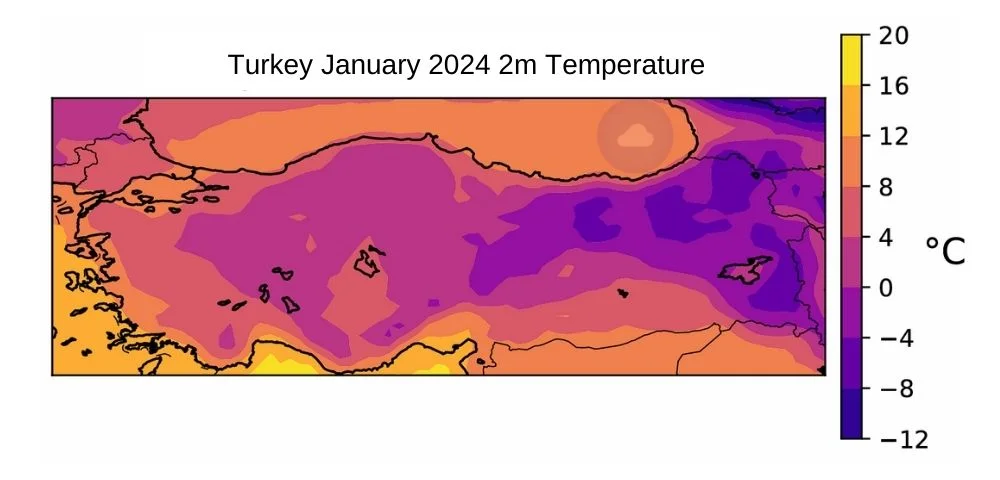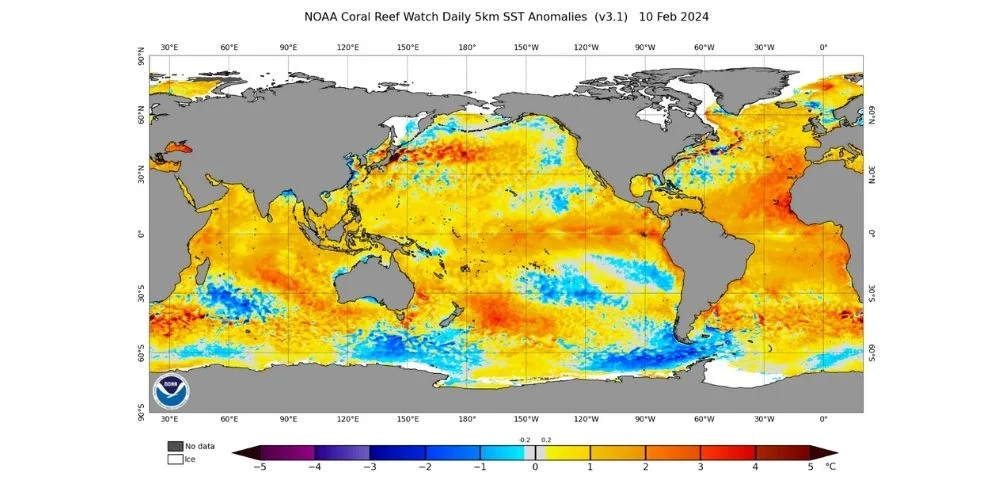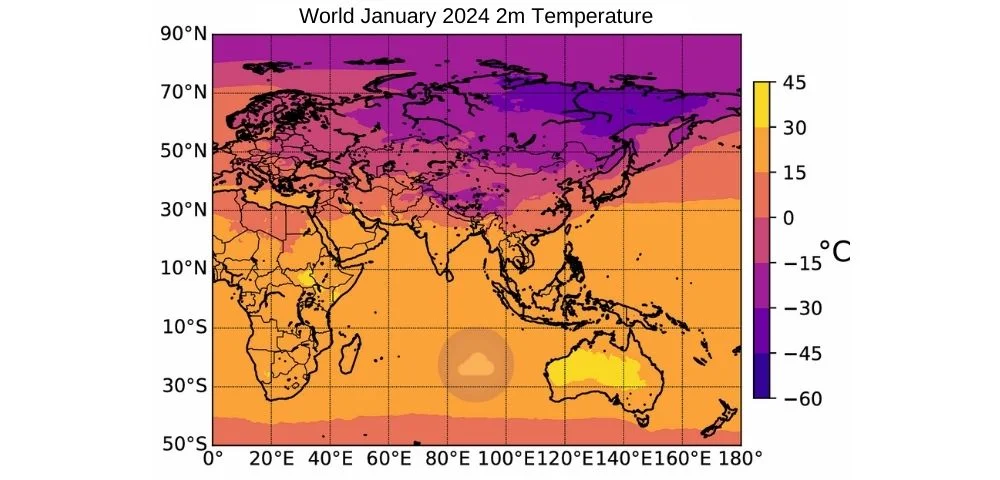
One Record After Another
Last year, 2023, broke records as the hottest year in recorded human history. In January 2023, which was the hottest January ever recorded, temperatures reached 12.87°C, making it the seventh warmest month. In our previous discussion, we mentioned the possibility of 2024 breaking this record.
Looking at the current situation, it seems that this record is beginning to be broken. January 2024 has become the hottest January on record with a temperature of 13.14°C. The average January temperature for the 20th century was calculated to be 12.00°C.
Not only January but also the last 8 months have been the hottest recorded consecutively, with the global average temperature in the last 12 months (February 2023 - January 2024) measuring 0.64°C above the 1991-2020 average. In this case, what could be the reasons for January, where we experienced temperatures 1.14°C higher than the average?

Effects of Climate Change and El Niño
Climate change is one of the first reasons that comes to mind. With the increasing population, humanity is producing and consuming more than ever before. Uncontrolled actions in production and consumption have brought us to the brink of irreversibility globally, just as there are consequences for every action. Regulations such as the Paris Climate Agreement aimed at stopping and slowing down climate change contribute to regulating production and raising awareness of consumption.
While climate change is the most obvious reason for the record-breaking temperatures, it is difficult to say that it is the only reason for the exceptionally hot years of 2023 and 2024. Our planet is currently experiencing a strong El Niño effect. So what is this El Niño?
When talking about El Niño, we also need to mention La Niña, which is the exact opposite. Normally, cold currents in the Eastern Pacific are suppressed by warm surface waters in the Western Pacific. However, during El Niño, this situation reverses.
Warm currents in the Eastern Pacific increase, bringing warm, dry air masses with high humidity and rainfall to the regions west of the Pacific Ocean. This can trigger extreme weather events such as heavy rains, floods, and droughts. In La Niña, however, cold currents in the Eastern Pacific are stronger than normal.
This puts more pressure on warm surface waters in the Western Pacific. As a result, while regions west of the Pacific Ocean may be drier and hotter, regions in the central and eastern Pacific may be at higher risk of rainfall and flooding.
The increasing sea surface temperatures due to climate change enhance the effects of El Niño and La Niña. Considering these factors, it seems possible that 2024 will refresh the record for the hottest year.

Is Everywhere Getting Hotter?
Climate change is said to be causing the Earth's temperature to rise. While this is true overall, not every region experienced above-average temperatures in January 2024. Eastern Canada, northwestern Africa, the Middle East, Europe, and Central Asia saw temperatures above average. In contrast, western Canada, the central region of the United States, and eastern Siberia had temperatures below average.







